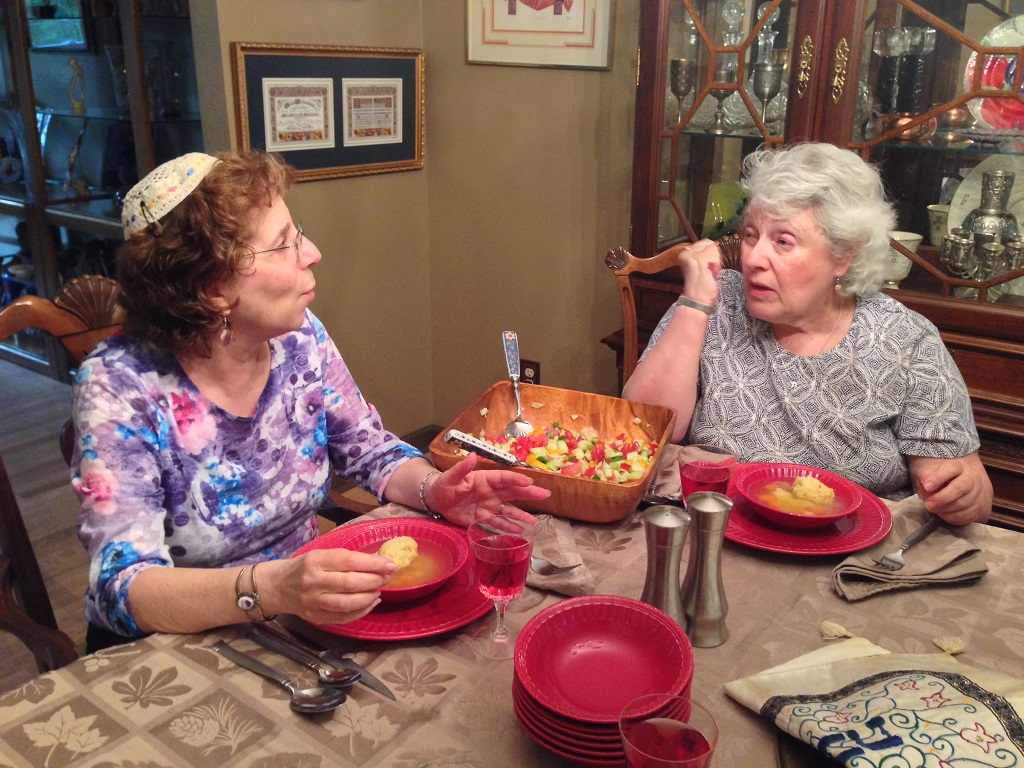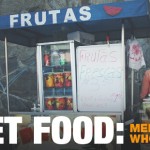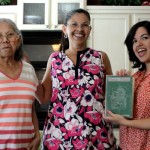
Rabbi Debra Smith and Roz Steinberg – Photo by Ramaa Raghavan
On a warm Friday evening in July, the aromas of onions and meat waft through Barbara Meltz’s home in Stanhope, New Jersey, as she puts the final touches on her Shabbat dinner.
Shabbat, the Jewish Sabbath, is celebrated every week from sundown on Friday to nightfall on Saturday. On Friday evenings in Jewish homes, candles are lit, blessings are offered, and then a special meal is served.
Meltz has prepared several traditional dishes: apricot kugel, beef brisket, and matzoh ball soup. On the stove, green beans are simmering with tomatoes and onions, while Rabbi Debra Smith chops cucumbers, peppers, tomatoes, and scallions for a salad.
Just before sunset, Meltz, her husband Donald, Rabbi Smith, and two friends gather in the dining room to light two Shabbat candles. The wine (in this case, juice) is blessed, followed by the breaking and sharing of bread (a corn muffin, rather than traditional challah)—with short Hebrew songs accompanying each ritual. Then they sit down to eat.
Rabbi Smith created this community called Or Ha Lev (meaning Light of the Heart) to help Jewish families bond with each other. Once a month hosts are matched with guests, so they can all share Shabbat at home. Since food is rarely cooked in synagogues, these home meals have become a place for families in Stanhope’s small Jewish community to share traditional Shabbat meals.
Read more in this series Cooking the Faith: Breaking a Fast and Building Community
For the Meltzes, Shabbat is an important Jewish ritual that separates the work week from the weekend and the mundane from the spiritual—the linchpin of being Jewish. For Donald Meltz, whose family comes from Germany, Russia, and Austria, food is a tangible connection to his family’s heritage.
“For me, all it takes is a bagel and lox to go back to a place where I came from 60 years ago,” he says. “These foods put me back in the presence of lost grandparents, aunts, and uncles.”
But for Barbara, it’s not the food but rather gathering with family and friends that makes Shabbat holy.
“Shabbat is a joyous experience because you are entering into a spiritual realm,” she says. You are…supposed to be holy and concentrate on being a good person—connecting to what your idea of God is and to other people.”
Fi2W is supported by the David and Katherine Moore Family Foundation, the Ralph E. Odgen Foundation, and the Nicholas B. Ottaway Foundation.



